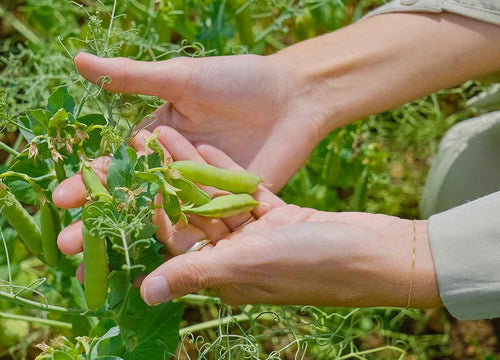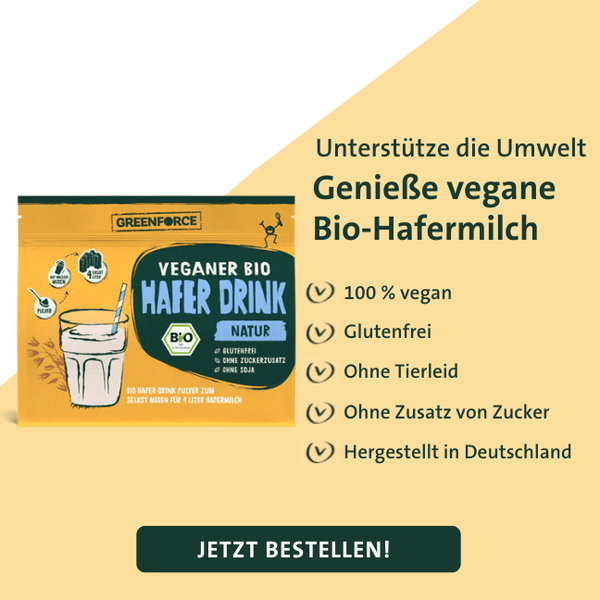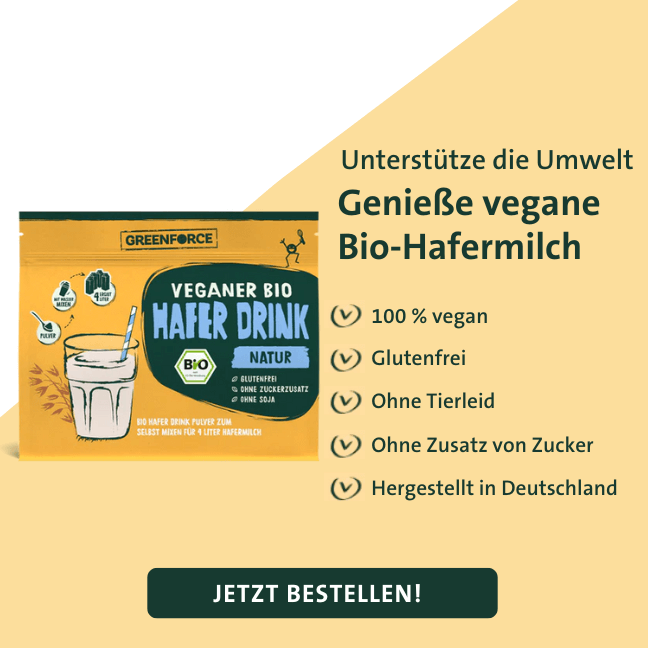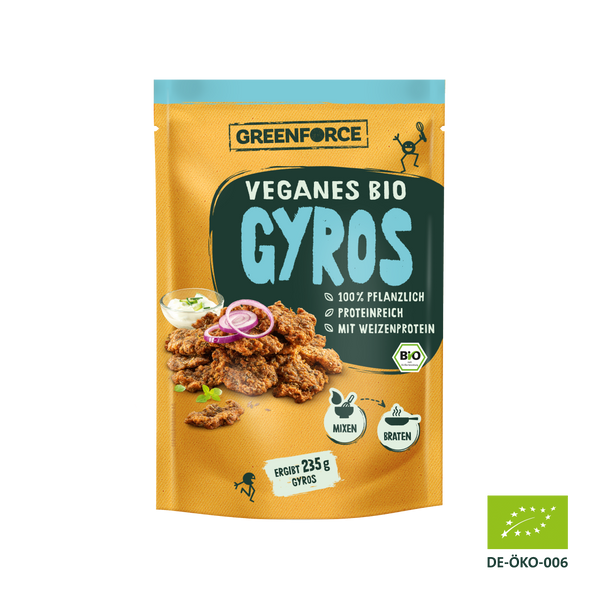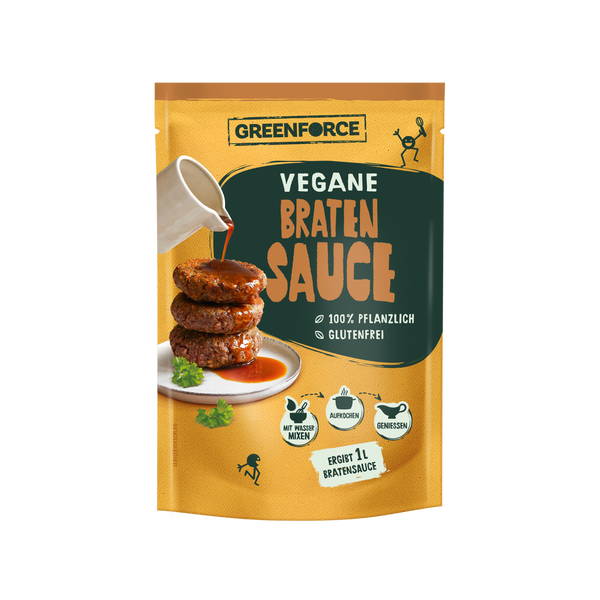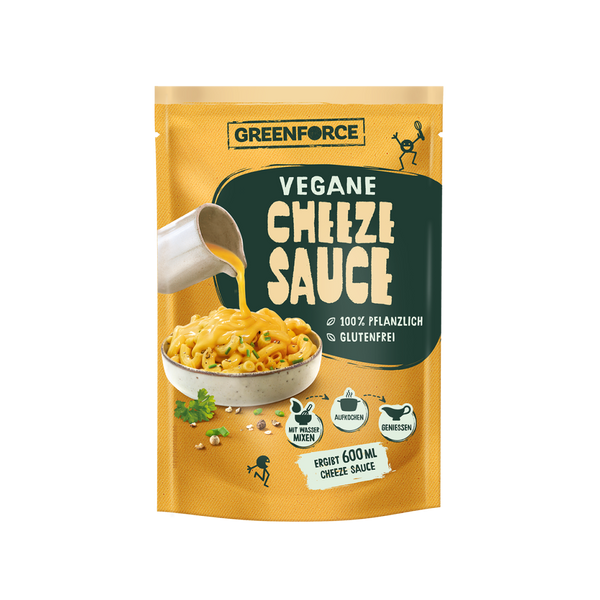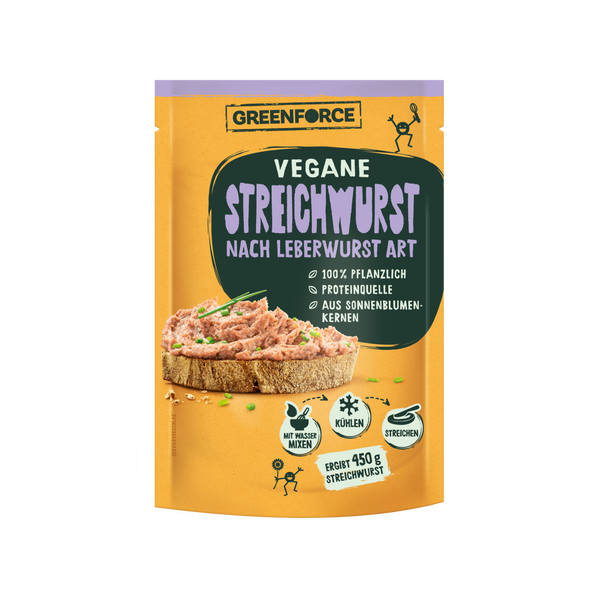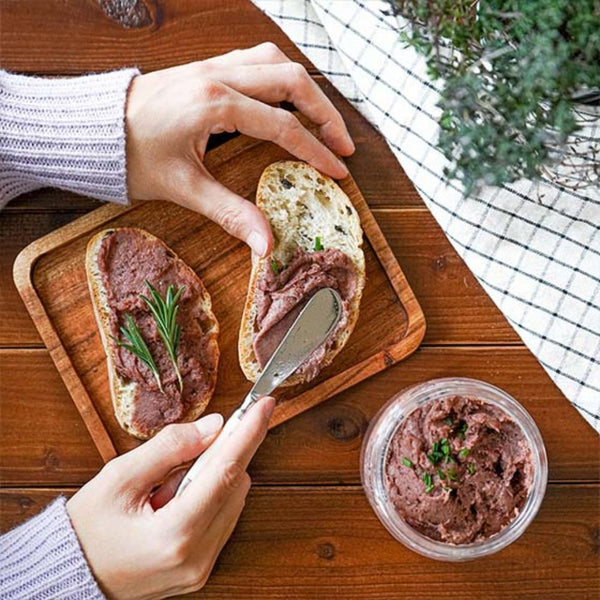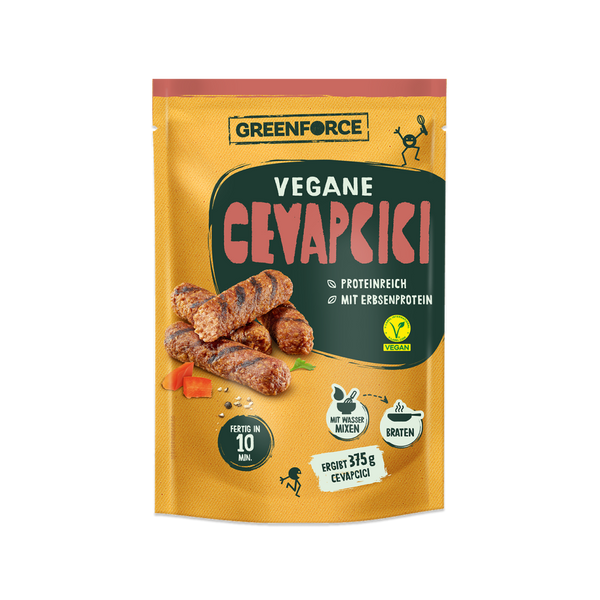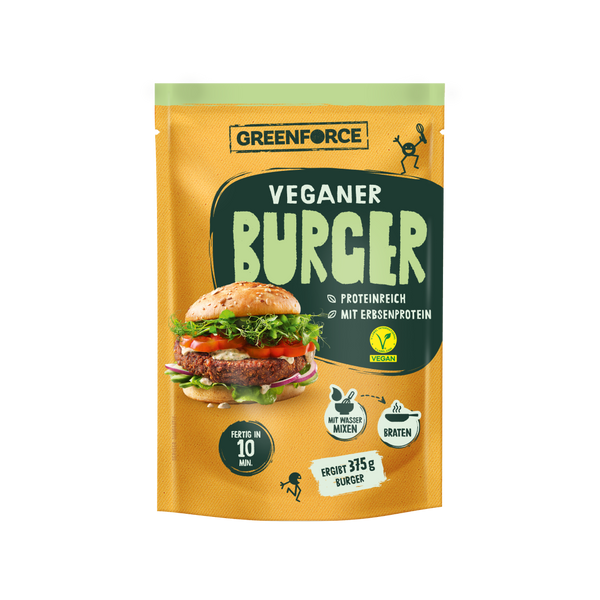Stomach pain after milk but no lactose intolerance?
Theresa Aicher
10/10/23
Reading time: 8 minutes
More and more people are reacting to the consumption of dairy products with various digestive symptoms. Drinking milk often proves to be more or less well tolerated depending on age. Some sufferers develop an intolerance to lactose over time.
Others have proven to have no problem with foods containing lactose, but still have stomach pain and other symptoms. Is there a milk allergy? We'll get to the bottom of this question with you in this article. There is an explanation for stomach pain after milk without lactose intolerance .
Milk intolerance has different faces
Milk is a complex animal food. Among other things, it is rich in protein and contains milk sugar (lactose). The majority of the proteins contained are of a special type and are called caseins. It also contains whey proteins.
While lactose is not contained in all dairy products, or only in very small amounts in some products, the proteins remain intact even when processed. This means that they are consumed in many other foods to which small amounts of cow's milk are added.
This can include baked goods, sauces and much more. Ready-made foods in particular often consist of a variety of ingredients and ingredients. This often includes cow's milk. Lactose and milk proteins can cause intolerance reactions and allergies in people.
The symptoms often merge into one another, so that those affected cannot be sure, based on their symptoms, why products containing Kuhmlich are causing them problems.
What is lactose intolerance?
This intolerance to products containing lactose is not an allergy. Anyone who is lactose intolerant does not have a certain enzyme or does not have enough of it. The enzyme lactase in the small intestine has the task of breaking down lactose into its two components, galactose and glucose.
Only this breakdown makes it possible to digest dairy products. The sugars can then enter the bloodstream via the mucous membrane in the small intestine. The lack of an enzyme therefore has far-reaching consequences : the digestion of foods containing lactose is restricted.
Undigested, the milk components reach other parts of the intestine, where bacteria begin to decompose them. Among other things, intestinal gases form, which can lead to flatulence and abdominal pain. The severity of the symptoms depends on the individual . Those affected can often barely tolerate cow's milk in its pure form.
In contrast, other dairy products such as yogurt, kefir and especially cheese are often better tolerated. The reason for these differences is the varying lactose content in these products. If you have an intolerance, the consumption of products containing lactose cannot be completely ruled out.
Intolerance acquired or genetically determined?
The formation of the enzyme varies genetically among peoples around the world. Some African or Asian people can only tolerate lactose in childhood. They digest breast milk normally. In adulthood, the enzyme is missing and dairy products are not tolerated or are tolerated worse.
Other people, primarily Europeans, are genetically equipped to produce lactase even in adulthood . However, around 10% of them develop enzyme production deficits in adulthood .
The phenomenon of lactose intolerance in old age is interesting because in some people the production of the enzyme decreases, especially as they get older, and this has not yet been clearly clarified. Those affected are unexpectedly confronted with symptoms such as flatulence and diarrhea .
Lactase tablets provide relief
The difficulties with the production of the enzyme lactase have been alleviated to a certain extent by lactase tablets . Lactose-intolerant people can take the enzyme in tablets before consuming dairy products.
This prevents serious digestive problems after consuming milk, cheese, yoghurt and related products.
What is casein intolerance?
Some of us complain of a variety of symptoms after drinking milk and are not lactose intolerant. Even infants and small children can be affected.
The focus of the complaints is often digestive problems, but not only. In addition to symptoms such as nausea, vomiting, abdominal pain and milk constipation, casein intolerance can also cause other symptoms :
- Difficulty breathing
- Sniffles
- Cough
- Swelling in the larynx area
- itching
- swelling in the mouth
- red face after eating
- Hives
- Swelling of the skin
- non-specific complaints such as fatigue .
Rarely and in very serious cases, a so-called anaphylactic shock occurs. This is a life-threatening allergic reaction that can lead to circulatory collapse, rapid heartbeat, dizziness, severe shortness of breath and even loss of consciousness.
If you have ever dealt with an allergic reaction, you may recognize these symptoms. They describe possible reactions of the body in the form of a milk allergy. It has to say exactly: “milk protein allergy ”. In this case, the human immune system reacts to the proteins in cow's milk, primarily casein .

What happens to the body when I have a milk white allergy?
The symptoms associated with an allergy to cow's milk regularly occur very shortly after consuming the products. Experts speak of an immediate type allergy.
This makes it easier to establish a connection between enjoyment and discomfort. On the other hand, an allergy to cow's milk can suddenly cause very serious symptoms.
The human body reacts to the penetration of foreign substances by forming antibodies. These ensure that our immune system releases a messenger substance. The messenger substance is called histamine .
In itself, this reaction is an important defense mechanism for effectively combating foreign substances such as pathogens. For reasons that are not yet clearly known, the human immune system sometimes reacts to harmless substances such as milk proteins with a defensive reaction.
An increased number of lgG antibodies trigger typical allergic reactions such as inflammatory processes on the skin or mucous membranes through the increased release of histamine . A variety of other complaints can also be a direct result of the allergic process.
There is also a risk of cross allergy. Those affected then react with allergy symptoms not only to cow's milk, but also to sheep's and goat's milk as well as to eating beef.
Lactose intolerance and milk white allergy in comparison
Although both symptoms arise from the consumption of dairy products , they have different reasons and differ in severity. The intolerance can now be alleviated and allows many sufferers to consume various cow's milk products even without separate intake of lactase.
Some lactose intolerant people can tolerate yogurt, cheese or kefir, at least in small amounts. In special cases, the missing enzyme can be replaced from outside. Those affected risk diarrhea and flatulence if they consume too much food containing cow's milk .
But they are not threatened with a comprehensive, serious and perhaps life-threatening reaction from the body. In other respects, lactose intolerant people have it much easier than milk allergy sufferers. The dairy industry has, to a certain extent, adapted to its problems.
It now offers a range of lactose-free products . For people with this food intolerance , it is often no longer necessary to abstain completely.
When it comes to allergies, things are different than milk intolerance : allergic reactions can vary in intensity depending on the individual affected. However, the risk of a sometimes life-threatening immune system reaction is always present.
Therefore, there is little scope for the intake of milk proteins if you have a milk protein allergy . The subsequent reaction cannot be estimated in advance.
While lactose intolerance only slightly limits the quality of life, milk allergy can severely limit the diet of those affected. This is especially true with regard to processed foods that secretly contain milk proteins.
Therapy for an allergy to cow's milk?
To date, doctors and nutritionists have not found an approach to cure milk protein allergy. The possibility of desensitization is currently being intensively researched .
The treating doctors specifically expose those affected to increasing amounts of milk proteins so that the body can get used to the allergens. It is not yet clear whether this method can be successful on a large scale in the case of an allergy to cow's milk.
It has been used for a long time for other allergies such as hay fever . However, it is not suitable for everyone affected there either. Desensitization also requires a lot of patience because the treatment can sometimes take years.
For some people with an allergy to cow's milk , this becomes less severe over time. This is particularly true for small children, who lose the immune system's response as they move into adolescence and adulthood. Such a development cannot be predicted individually.
If you are allergic to cow's milk, it makes no sense to keep risking severe allergic symptoms. Your way out is to consistently avoid foods that contain milk proteins.
It may not be the most tempting prospect at first, but you have a wide range of delicious alternatives to cow's milk at your disposal. Maybe by doing without you will discover a diet that has much more to offer you.
At Greenforce we have a large, attractive range of vegan foods. Your milk intolerance or allergy is no longer an issue.
Do you already know?
Currently unavailable
Live vegan - live without dairy products
Vegans avoid animal foods. This diet is therefore also an alternative if you cannot tolerate milk proteins or have an intolerance. Discover delicious vegan products with us that do not contain any dairy ingredients.
You should choose high-quality vegan foods to meet your nutritional needs. Greenforce spoils you with many vegan delicacies. Here you can use oat milk instead of cow's milk. We also have vegan yogurt in our program.
With us you will find suggestions for breakfast and all other meals without milk proteins. Turn your back on conventional dairy farming. In doing so, you also contribute to climate protection and animal welfare.
Many people today not only decide on an adapted diet because of lactose intolerance , but also choose a vegan or predominantly plant-based diet without an allergy.
We make the switch easy for you with our range of high-quality legal products. Maybe, like many others, you will no longer see turning away from cow's milk as a renunciation. Your quality of life can even improve.
No more suffering from cow's milk
You don't have to put up with symptoms of your lactose intolerance and milk allergy. No stomach ache after milk etc. By changing your diet and using high-quality vegan products, you can set the course for a new, pain-free life. You don't have to miss out on the enjoyment and joy of eating.
On the contrary, you could discover new foods and tastes that enrich your culinary life. Taste and enjoyment are not dependent on foods containing lactose or on the milk proteins they contain.
You don't have to miss out on beloved rituals like a hearty snack with vegan food . Let stomach aches, diarrhea and allergic reactions be a part of your past.
Likewise the fears and the bad feeling when you don't know exactly whether you will be able to tolerate the next meal with milk ingredients. With vegan products you are on the safe side with any form of milk intolerance . Full of enjoyment, but no spoilsport in the form of stomach aches or allergic reactions .






